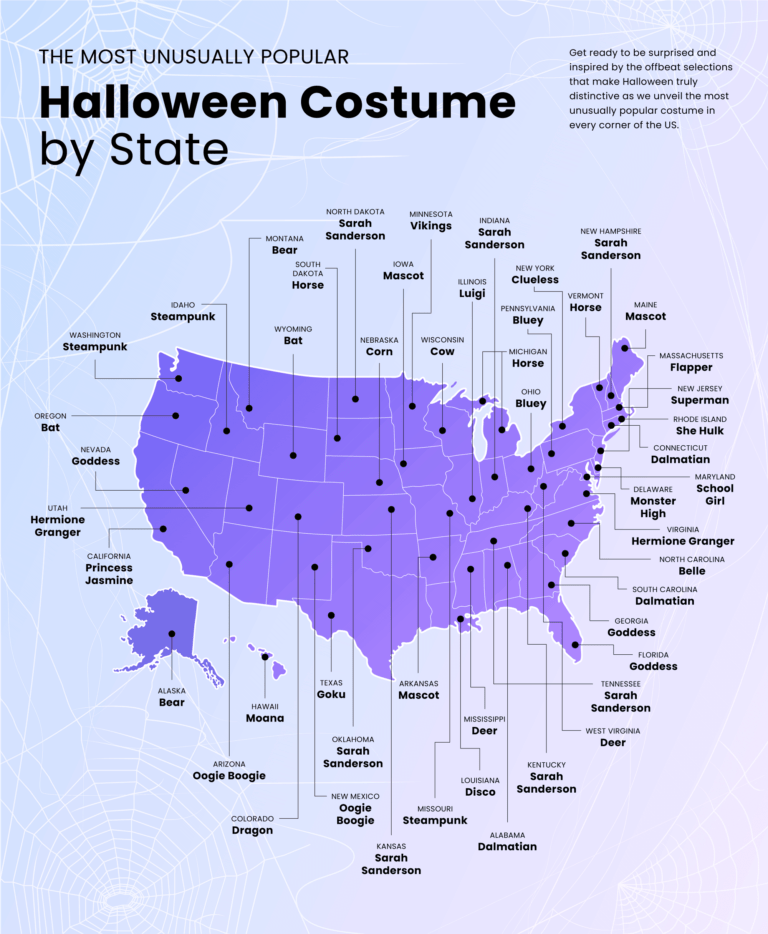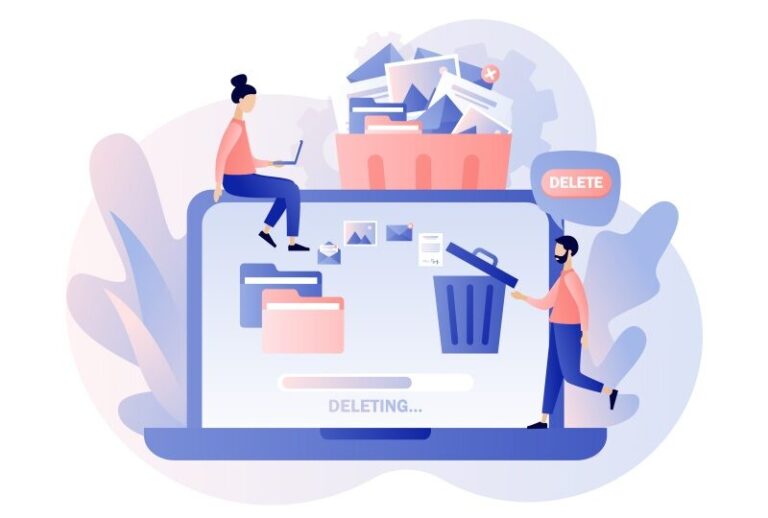Table of contents

Have you ever thought about your online presence when searching for a job?
If the answer is no, you may have some work cut out for you.
According to a survey by CareerBuilder, 70% of employers use social media sites to screen candidates before hiring, while 54% of them have eliminated a candidate based on their accounts.
In today’s digital age, with the prevalence of Google searches, social media, personal websites, and blogs, it’s highly probable that employers will meticulously examine your online persona. Thus, the question arises: can your online presence help your job search?
In this blog we discuss:
- 4 Ways Your Online Presence Can Help Your Job Search
- 4 Channels That Can Boost Your Online Presence
- Common Mistakes When Creating Your Online Presence
4 Ways Your Online Presence Can Help Your Job Search

1. Visibility
Online presence is all about visibility.
Today’s job marketing is highly-competitive, and depending on your industry, can also be saturated. As soon as a job posting goes up, recruiters are inundated with applications from all sorts of people, both highly qualified and not-so-highly qualified.
Creating a positive online presence (we’ll discuss how later in the blog) makes it that much easier for recruiters to find you.
2. Showcasing your skills
Imagine you’re applying for a role as a public relations specialist. You send in your CV, showing you were a top student in your uni’s class, 5+ years experience in the field, and a number of highly-reputable references to back you up.
That should be enough, right?
Wrong.
As impressive as your academic and professional background is, you’re up against 10 other applicants with a similar (or even slightly more impressive) CV.
This happens to recruiters daily, so they often turn online to dig up more information on their job candidates. If you have established an online presence providing an extra glimpse into your work – via an online portfolio or website showcasing features for past clients, testimonials, etc. – you have a clear edge over the competition instantly.
3. Showcasing your personality
Although it may be easy to forget, remember that companies are made up of people.
And do people have? Personalities.
More and more businesses are realising the importance of hiring people not only for their skillset and professional experience, but also for their values, perspectives and character. To better gauge if you are a cultural fit to a company, a recruiter may want to know what motivates you, what you enjoy in your free time and what you’re passionate about.
An online presence that accurately shows what makes you tick, and recruiters believe you’d be a good fit with the business’ current team, they’ll be more likely to reach out.
(*But beware, this can also have adverse effects on your dream job search. More on what not to post on your online channels later.)
4. Networking tool
Sometimes you can’t just wait for a job to fall in your lap or a recruiter to pick up the phone to call you.
A lot of times you have to take matters into your own hands, and networking is the name of the game, baby.
One of the biggest advantages of having an online presence is the ability to connect with people all over the world in an instant. Whether it’s like-minded job searchers like you, employees at a company you’re trying to get your foot into, or possible mentors who can help guide you throughout your job search journey.
Social media and knowledge-sharing platforms such as LinkedIn, Facebook and Medium let users create their own profiles and channels to post and share what interests them most. These platforms make it easy to reach out and make new contacts, potentially leading to professional opportunities.
4 Channels That Can Boost Your Online Presence

The internet is ripe with social media platforms popping up left and right, but some may be more effective than others when building an online presence when looking for a job.
This one is a no-brainer…an absolute must.
The very first place employers turn to when checking out a candidate is LinkedIn.
When creating your LinkedIn profile you’ll be able to add your academic and professional background, pieces of work you’d like to feature, licenses and certifications you’ve acquired and your volunteer experience. It even allows your contacts to leave endorsements, a great way for human resources specialists to see how the positive ways you’ve impacted others in your career.
LinkedIn essentially acts as an online CV, so make sure it’s up to date and complete.
What once seemed like an overly-simplified way to tell your network what you were up to any given moment of the day has now turned into a global powerhouse of news, entertainment, thought-leadership and networking.
If you haven’t snagged a name on Twitter yet, it’s about time you did!
Companies both large and small post jobs on Twitter daily, and those who follow and engage in the conversations with them will likely be noticed. Showing a track record of interest in a company and what it’s doing is a great way to demonstrate your interest and motivation for working there.
If you spend time and effort searching relevant influencers and firms, responding meaningfully to tweets, and sharing interesting content, you can even build your own following and become a reference.
Building your name in the Twitter-verse is a powerful way to attract the attention of employers.
Many are quick to brush off Facebook as a professional networking tool, but we beg to differ.
If we’re talking about numbers alone, Facebook had roughly 2.8 billion monthly active users as of the fourth quarter of 2020, making it the leading social media platform in the world.
Looking at those statistics, we can make a safe assumption that not only your own peers and colleagues are on the site, but recruiters and future employers, too, making it a great networking tool.
A majority of companies also have their own Facebook Business page where they post company updates, job openings and news. Reaching out via Facebook can be a great way to get noticed, as a majority of social media users are using Twitter and LinkedIn to do so.
YouTube
YouTube may not have a job search function or enhanced networking features like the above social media platforms, but it’s a fantastic channel to build your online presence.
If you’re working in a highly creative field such as motion graphics design, animation, film and television, or a field that involves public speaking, facilitation or presentations, YouTube is a great place to show off your talent.
Upload videos of your past work so employers have easy access. Include the link on your CV and all your other social media profiles to maximise exposure. Heck, you may even want to make a video-based CV, too!
Website/Online Portfolio/Blog
And last, but certainly not least, is a website, online portfolio or blog.
Creating a website, online portfolio or blog is a crucial step in developing your own personal brand (and a great way to leave a digital trail behind your name). Here you can upload a bio, photos, past work, your writing, thoughts, links to your other social accounts, and contact information.
“But I can’t create a website! I don’t know how to code!”
No worries. Long gone are the days when creating a website meant hiring a web developer and designers. There are plenty of platforms that allow first-time users to build from scratch with simple drag-and-drop functions.
You can create your own website or portfolio for free at websites like:
There are also a number of free platforms where you can build a blog such as:
Common Mistakes When Creating Your Online Presence

You know what they say, “What happens on the internet, stays on the internet.”
Erm, well, something like that.
And it’s true. With all the benefits the world wide web has brought us, it can also work against us we’re not careful about what we’re uploading, sharing and posting. If careless, your online presence can actually be detrimental to your job search.
Let’s go over some of the most common mistakes when creating an online presence:
- Posting indecent photos or videos that are open for the public to see. The last thing an employer wants to see is a photo of how smashed you and your ex-colleague got last Wednesday evening at the pub!
- Sharing strong political or controversial opinions. Everyone is entitled to their own opinions, beliefs and values, but being aggressively vocal about them may turn off potential employers, especially if they fear you may cause a ruckus at the workplace.
- Trash-talking your former/current job or colleagues. This just shows you have a bad attitude and may explode any time there is an inconvenience or disagreement at work.
- You are careless or messy with your content. Sharing content to attract attention to your site/channel/portfolio is great, but when the content you share is either low quality or not proofread, it can be a turn off for potential employers.
- Not checking privacy settings. Sometimes, there is content that you want online, but only visible to yourself or a select few. Protecting this content means you need an understanding of how to use each channel’s privacy settings. These are constantly changing, so not keeping up-to-date can lead to private content being shown to the public.
Final Thoughts
When it comes to building an online presence to aid in your career path, remember to make your channels work for you, not against you. Make sure your online activity represents you in the best possible way and makes you attractive to hiring managers. And remember, if you’re doubting whether something may be unattractive to potential employers, DELETE!





